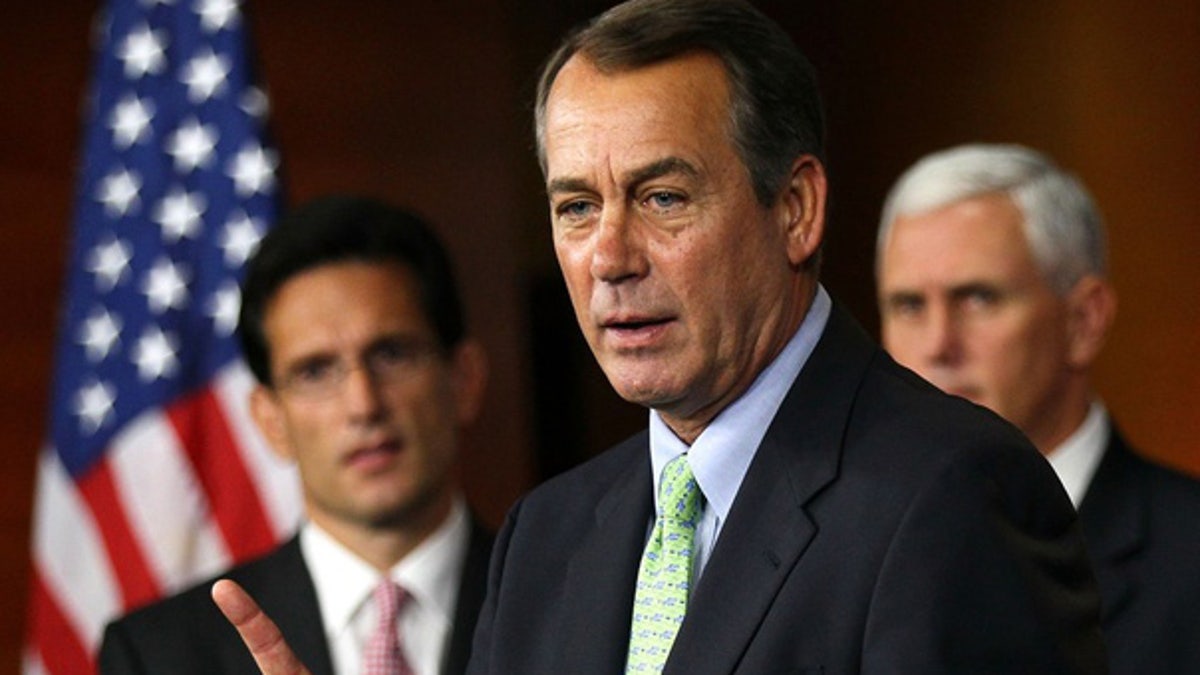
Sept. 29: Minority Leader Rep. John Boehner speaks as House Minority Whip Rep. Eric Cantor and Rep. Mike Pence listen on Capitol Hill. (2010 Getty Images)
PORTLAND, Ore.—Republicans on the campaign trail are bashing the president and his agenda and some are vowing to shut down Washington if they don't get their way. Behind the scenes, key party members are talking a different game.
A number of House Republicans, including some who are likely to be in the leadership, are pushing a post-election strategy aimed at securing concrete legislation, with the goal of showing they can translate general principles into specific action.
Among the ideas is to bring a series of bills to the floor, as often as once a week, designed to cut spending in some way. Longer term, GOP leaders say they recognize they may have to compromise with Democrats in tackling broader problems.
If they recapture the House, Republicans say they are wary of following the example of the class of 1994, which shut down the government in a standoff with President Bill Clinton. Top Republicans contend that passing legislation, or at least making a good faith effort to do so, will earn them more credibility with voters than refusing to waver from purist principles.
"It's pretty clear the American people expect us to use the existing gridlock to create compromise and advance their agenda," said Rep. Darrell Issa (R., Calif.). "They want us to come together [with the administration] after we agree to disagree."
GOP leaders stressed that this depends on the willingness of President Barack Obama to compromise as well. And some say if the post-election atmosphere is especially toxic, such compromises may be difficult.
The approach stands in contrast to the Senate, where Republican nominees including Kentucky's Rand Paul and Nevada's Sharron Angle more clearly represent the anti-establishment instincts of the tea-party movement. This would be a role reversal of sorts—the Senate was designed by the founding fathers to be the more sober institution.




